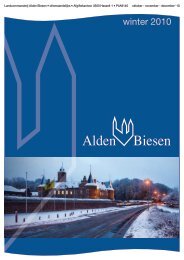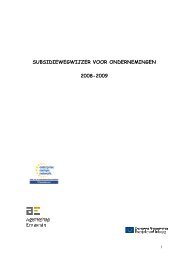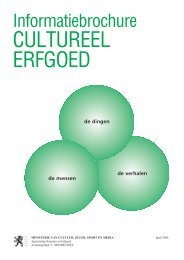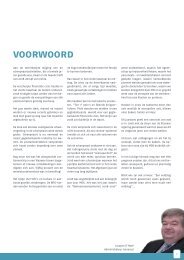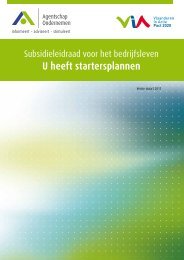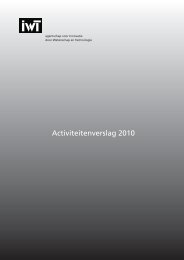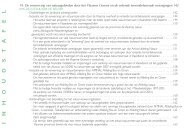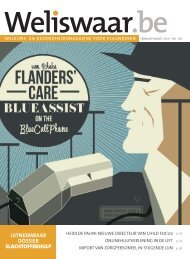Acknowledgements Book of abstracts - Publicaties - Vlaanderen.be
Acknowledgements Book of abstracts - Publicaties - Vlaanderen.be
Acknowledgements Book of abstracts - Publicaties - Vlaanderen.be
Create successful ePaper yourself
Turn your PDF publications into a flip-book with our unique Google optimized e-Paper software.
Filiep Vanhonacker presents Oral paper 35<br />
In session 7: Stakeholders' views on animal welfare<br />
Saturday, 13 Septem<strong>be</strong>r 2008 from 10h00-10h15 in the Aula chaired by Hans Hopster<br />
63<br />
Oral paper 35<br />
CONSUMER ATTITUDE TOWARDS THE SURGICAL CASTRATION OF<br />
PIGLETS AND IMMUNOCASTRATION AS A POSSIBLE ALTERNATIVE:<br />
A FLEMISH PRELIMINARY STUDY<br />
F. Vanhonacker 1 , F. Tuyttens 2 , W. Ver<strong>be</strong>ke 1<br />
1<br />
Department <strong>of</strong> Agricultural Economics, Faculty <strong>of</strong> Bioscience Engineering, Ghent University, Ghent,<br />
Belgium<br />
2<br />
Department <strong>of</strong> Animal Sciences, Institute for Agricultural and Fisheries Research, Melle, Belgium<br />
In the large majority <strong>of</strong> European countries, piglets are <strong>be</strong>ing surgically castrated due to the 5 to<br />
10% chance on boar taint in pork from uncastrated boars. In addition, castrated pigs are less<br />
aggressive and express less sexual <strong>be</strong>haviour. With the exception <strong>of</strong> some countries, castration is<br />
performed without anaesthesia. Due to a growing societal concern, this practice suffers from a high<br />
level <strong>of</strong> opposition. Moreover, also the farmers experience the castration as an unpleasant task.<br />
Also in Belgium, surgical castration <strong>of</strong> piglets without anaesthesia is subject to a lot <strong>of</strong> criticism. A<br />
lot <strong>of</strong> research is currently done on possible alternatives, among them immunocastration. This<br />
technique consists <strong>of</strong> a vaccine that inhibits the production <strong>of</strong> the hormones that cause boar taint,<br />
and is applied through two consecutive injections with an interim time <strong>of</strong> two weeks. One <strong>of</strong> the<br />
possible problems with this technique could <strong>be</strong> consumer acceptance. In order to gain insights in<br />
consumer knowledge, attitude and acceptance <strong>of</strong> immunocastration, a web-based questionnaire was<br />
spread to Flemish consumers.<br />
Results are based on a preliminary sample <strong>of</strong> 212 respondents. 47.6% indicates to <strong>be</strong> aware <strong>of</strong> the<br />
routine practice <strong>of</strong> piglet castration. With regard to the level <strong>of</strong> concern <strong>of</strong> this practice, an average<br />
neutral score was found, with 15% indicating to <strong>be</strong> not at all concerned and a similar percentage<br />
expressing a very high concern. 60% <strong>of</strong> the sample perceived immunocastration more positive<br />
compared to chirurgical castration without anaesthesia, an opinion which was most strongly based<br />
upon the perception <strong>of</strong> <strong>be</strong>tter standards <strong>of</strong> animal welfare, pork quality and farmer’s labour. Also,<br />
different messages informing about immunocastration were tested for their impact on consumer<br />
attitude and acceptance. Full results and conclusions will <strong>be</strong> presented at the conference.<br />
Contact information: Filiep Vanhonacker or email filiep.vanhonacker@ugent.<strong>be</strong><br />
Complete address: Department <strong>of</strong> Agricultural Economics, Ghent University, Coupure links 653, B-<br />
9000 Gent, Belgium<br />
Species: Pig



